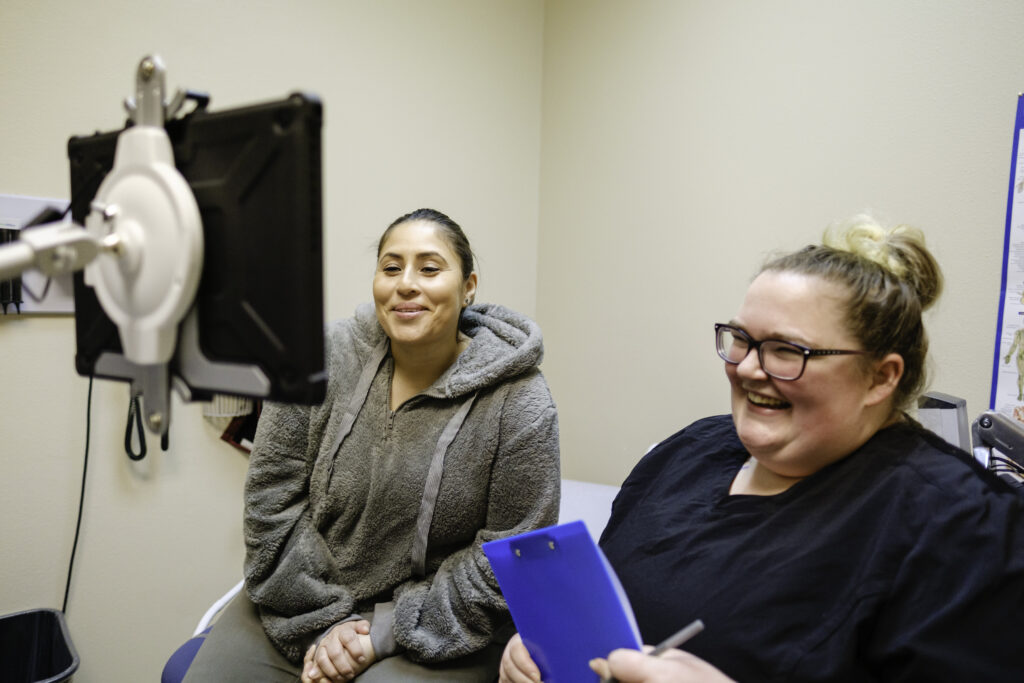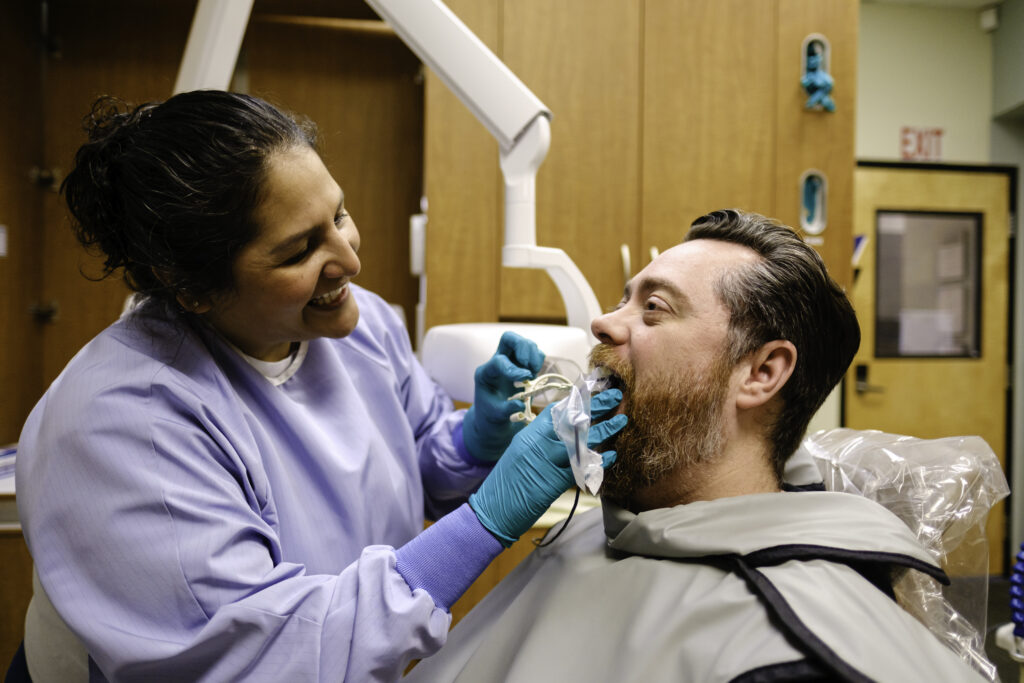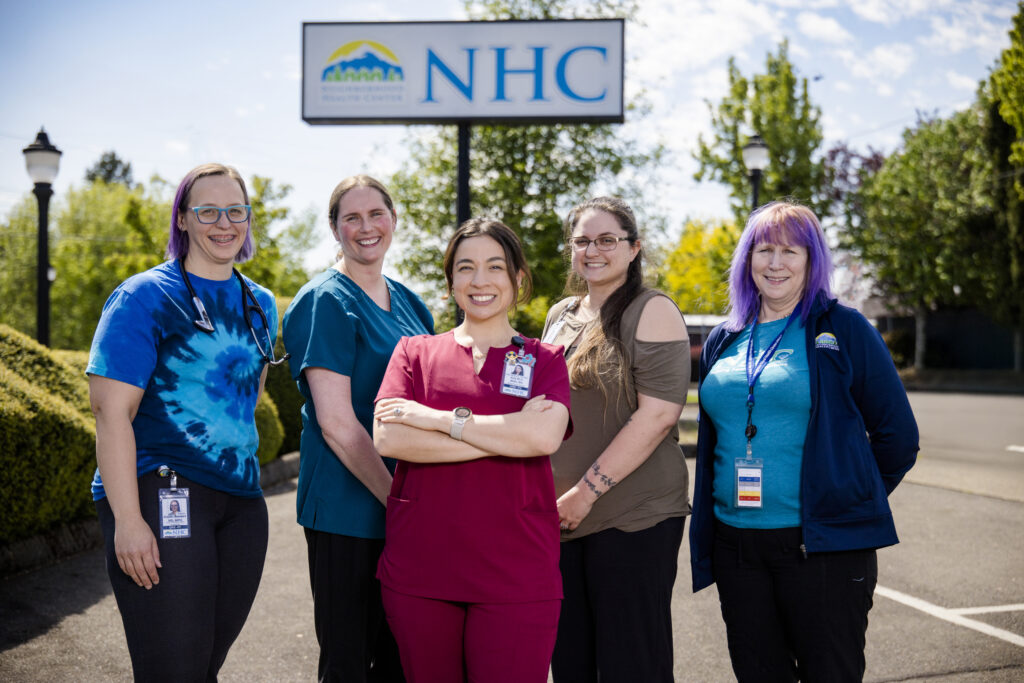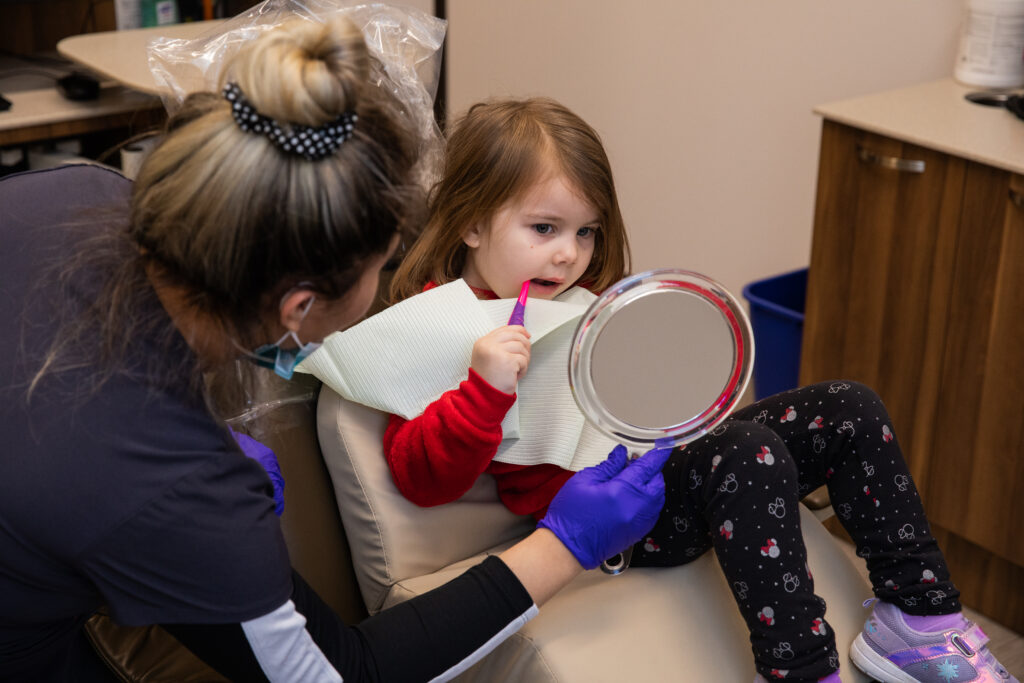What is a Community Health Center & Federally Qualified Health Center?
At Neighborhood Health Center (NHC), we believe everyone should have access to quality, affordable care — no matter their income, insurance status, or background. That’s why we’re part of a nationwide network of community health centers (CHCs) designed to meet people where they are and remove barriers to care.
What is a Community Health Center?
A community health center (CHC) is a local clinic that’s community-based and patient-directed. That means it’s built for the people it serves, with services shaped by community needs. CHCs have been around since 1965, and today, more than 1,500 organizations care for over 32 million people across the country.
Who Do CHCs Serve?
CHCs are welcome to everyone. They especially help people who might have trouble getting healthcare elsewhere, like:
- People whose primary language isn’t English
- Those living in areas with few doctors
- People without insurance
- Families with low income
The best part? You don't have to prove you "deserve" care. If you need care, they're there for you.

What Services Do They Offer?
Most community health centers offer many services under one roof. This makes it easier to get care for your body, mind, and smile without traveling far. Having services located all in one location allows caregivers to all work together on your personalized care plan.
Common services include:
- Primary care (your main doctor visits) for all ages
- Preventive care (checkups, vaccines, screenings)
- Treatment for chronic conditions (diabetes, high blood pressure)
- Women's health and family planning
- Behavioral health and counseling
- Help signing up for health insurance
Part of the “Healthcare Safety Net”
When we say CHCs are part of the healthcare safety net, it means we’re here to catch people who might otherwise go without care. Whether you’ve recently lost insurance, can’t find a provider taking new patients, or simply want care close to home, CHCs are designed to keep healthcare accessible.

What's a Federally Qualified Health Center?
A Federally Qualified Health Center (FQHC) is a type of community health center that meets extra federal requirements. FQHCs must:
- Serve an underserved area or population
- Offer a sliding fee discount based on income
- Have a patient-majority governing board
- Provide a specific set of comprehensive services
In return, FQHCs receive federal funding and other support that help keep costs low and services strong, like discounted medications, enhanced reimbursement from Medicaid and Medicare, and loan forgiveness programs to attract skilled providers.
CHC vs. FQHC: What's the Difference?
A FQHC offers all the services and programs that a CHC does. But an FQHC also has some specific elements. Both are community-based and patient-directed. All FQHCs are CHCs, but not all CHCs are FQHCs. The chart below offers a closer look.
| Community Health Center | Federally Qualified Health Center |
| Community-based healthcare | Community-based healthcare |
| Serves underserved populations | Serves underserved populations |
| Often offers sliding fee discounts | Required to offer sliding fee discounts |
| May have some patient input | Required patient-majority board |
| Some may limit services | Required comprehensive services |
| Various funding sources | Federal Section 330 funding and other sources of funding |
For patients, the care you receive will look very similar. The biggest differences are in funding and structure, not in how welcome or supported you feel.

What is Neighborhood Health Center (NHC)?
Neighborhood Health Center (NHC) is an FQHC that supports underserved communities in the Portland area, specifically in Washington and Clackamas counties. Some of our services are:
- Comprehensive medical, dental, and behavioral healthcare
- Pharmacy services for patients of all ages
- School-based health centers (SBHCs) for youth in a school setting
- Support signing up for the Oregon Health Plan (OHP) or other coverage
How to Become a Patient, With or Without Health Insurance
If You Have Insurance
Most community health centers:
- Accept Medicaid, Medicare, and most private insurance plans
- Can help you choose a Primary Care Provider (PCP)
- Make scheduling easy by phone or in person
- Ask you to bring your insurance card, photo ID, list of medications, and any relevant health records to your first visit
Medicaid & Medicare Patients Welcome
Community health centers always accept Medicaid (OHP in Oregon) and Medicare. You’ll usually pay little to nothing for covered services, and you don’t need a referral to see a primary care provider.
Private Insurance
Most health centers accept private insurance, too. Check with your clinic to make sure your plan is covered. You’ll usually pay your regular copay or deductible, and care is often less expensive than at a hospital.
If You Don’t Have Insurance
Many community health centers:
- Offer a sliding fee discount based on income and family size
- Provide flexible payment plan options
- Have staff who can help you apply for Medicaid or other health coverage — often free of charge
- Ask you to bring a photo ID and proof of income for financial assistance programs
Help Getting Coverage
NHC has trained enrollment specialists to help you. Enrollment specialists can help you apply for a health insurance plan that works best for you. This support is available free of charge.
Support includes:
- Help applying for Medicaid (called OHP in Oregon)
- Assistance with marketplace insurance plans
- Explaining different insurance options
- Help with paperwork and applications
- Follow-up support after enrollment
Related: How NHC's MES Team Helps More Oregonians Access Healthcare

Get Started with a Health Center Today
Ready to become a patient at a community health center? Here’s how to take the next step:
- Find a center near you
- Ask about available appointments
- Mention if you don’t have insurance
- Request translation services if needed
Health centers pride themselves on listening to patients. While you’re getting care, ask questions, share your preferences, and give feedback so your care works for you.
Many health centers make it easy to get medical, dental, behavioral health, and even pharmacy services in one place — saving you time, coordinating your care, and helping you build lasting relationships with your care team.